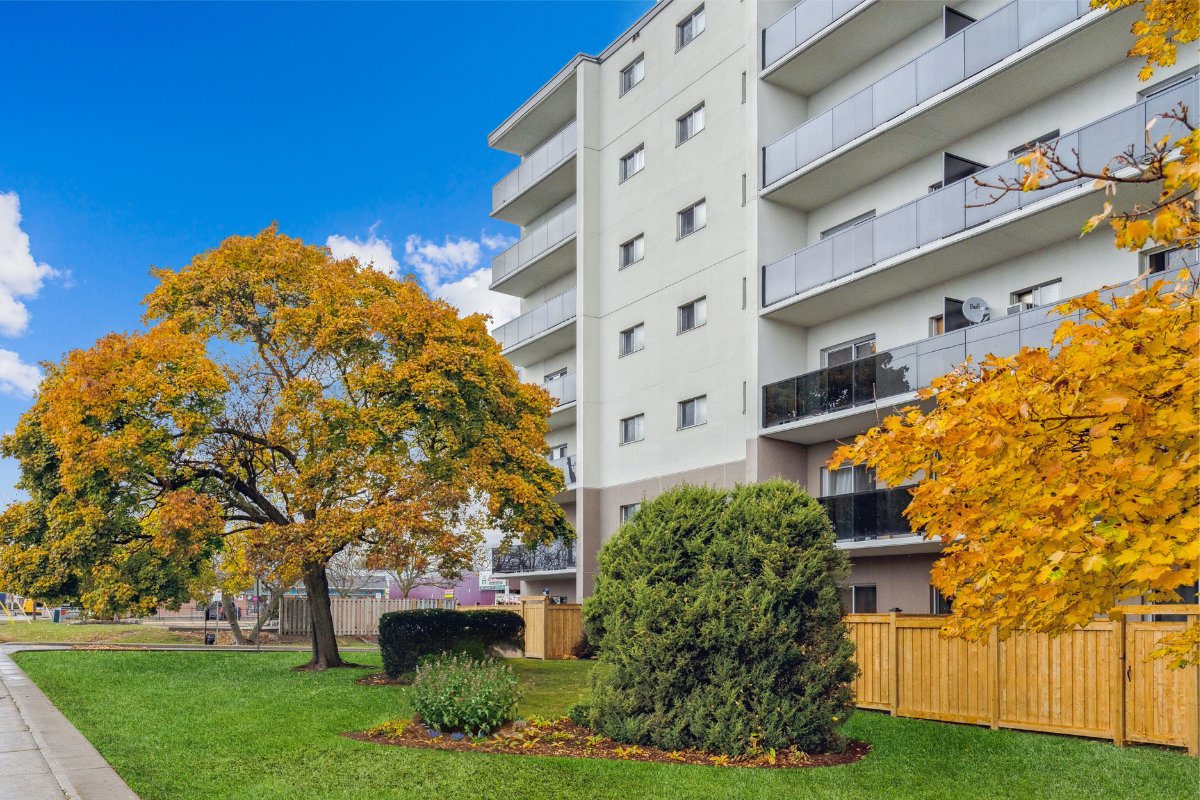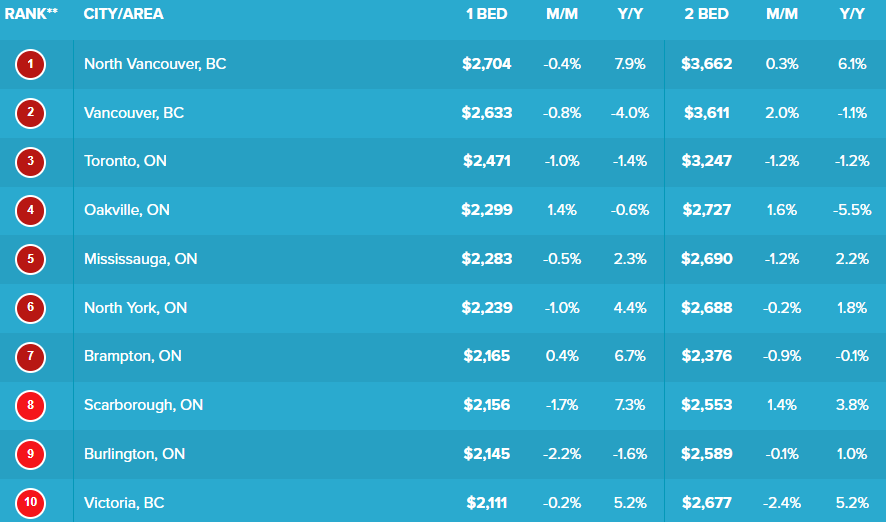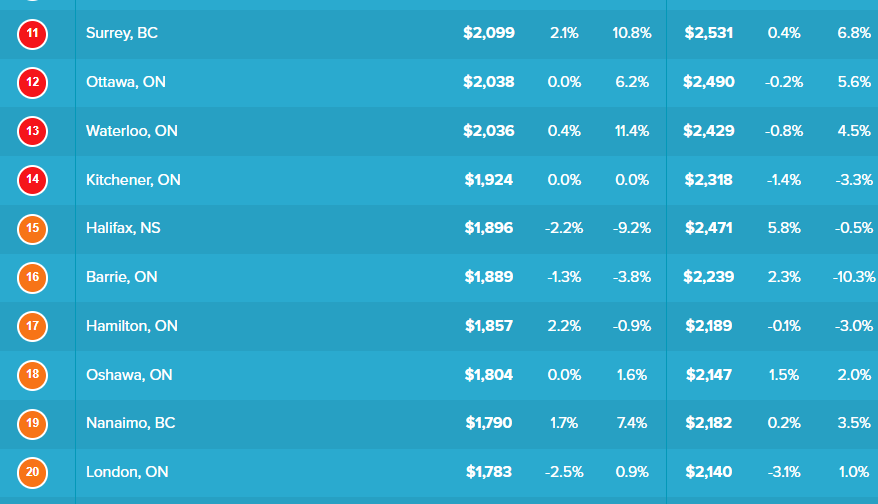‘Moderate gains’ in rents in Oshawa, Hamilton and the GTA last month
Published April 12, 2024 at 1:59 pm

Rents in Canada’s major rental markets in Vancouver and in the GTA saw moderate gains at best last month and even some decreases, while asking rents for all property types nation-wide were on the rise, up 8.8 per cent from a year ago, according the national rent report from Urbanation and Rentals/ca.
The big markets were mostly down month-to-month, with mixed results year-over-year, while Hamilton and Oshawa – located at opposite ends of the Greater Toronto and Hamilton area – were mid-way down the list of 35 cities, with Hamilton at #17 and Oshawa at #18 with one-bedroom rents averaging $1,857 and $1,803, respectively, and two-bedroom units renting at $2,189 and $2,147.

North Vancouver ($2,704) and Vancouver ($2,663) had the highest average rents in the country in March for one-bedroom units and both numbers were down slightly from February. The next three on the list were all in the GTA – Toronto ($2,471), Oakville ($2,299) and Mississauga ($2,283) – with Toronto and Mississauga down slightly and Oakville up 1.4 per cent.
Year-over-year rent increases exhibited some discrepancies in Canada’s hottest real estate markets, with North Vancouver (+7.9 per cent) and Vancouver (-4.0 per cent) showing the variations within neighbouring communities, with Toronto (-1.4 per cent), Oakville (-0.6 per cent) and Mississauga (+ 1.4 per cent) having similar variations in the GTA.
The big five remained unchanged for two-bedroom average rents, with North Vancouver ($3,662), Vancouver ($3,611), Toronto ($3,247), Oakville ($2,727) and Mississauga ($2,690) topping the list.
The numbers reflect some moderation from the 10.5 per cent jump nationally recorded in February and are also attributed to seasonal factors and a recent slowdown in rental demand in Canada’s most expensive markets.
Of those major centres, Vancouver (+2.0 per cent) and Oakville (+1.6 per cent) were the only markets to show increases month-over-month, while North Vancouver (+6.1 per cent) and Mississauga were the only centres up from 2023.
Rents for one-bedroom units in Hamilton were up 2.2 per cent from the previous month and down 0.9 per cent year-over-year and down 0.1 per cent from February and three per cent from 2023 for two bedrooms. Oshawa’s rents were unchanged in March for one-bedroom units from the previous month and up 1.6 per cent year-over-year. Two-bedroom homes were up 1.5 per cent month-over-month in Oshawa and up two per cent from March 2023.
Since the onset of the pandemic in March 2020, average asking rents in Canada have risen by a total of 21 per cent, equivalent to an average annual increase of about five per cent during the latest four-year period.
“The March data showed early signs of rent increases easing at the national level, weighed down by recent declines in key markets in Vancouver and Toronto,” said Shaun Hildebrand, President of Urbanation. “As population growth slows with caps on non-permanent residents and supply increases as rental completions continue to rise, rent growth should continue to moderate towards more sustainable levels.”
Purpose-built rental apartments saw a 12.7 per cent year-over-year increase nationally, averaging $2,117 in March. In contrast, condominium rental apartments experienced a slower growth rate, with a 3.9 per cent annual increase, reaching an average of $2,321. This divergence in growth rates can be attributed to factors such as record-high condominium completions in certain markets.
The National Rent Report charts and analyzes monthly, quarterly and annual rates and trends in the rental market on national, provincial, and municipal levels across all listings on the Rentals.ca Network for Canada. The report is written by Urbanation, a Toronto-based real estate research firm.








